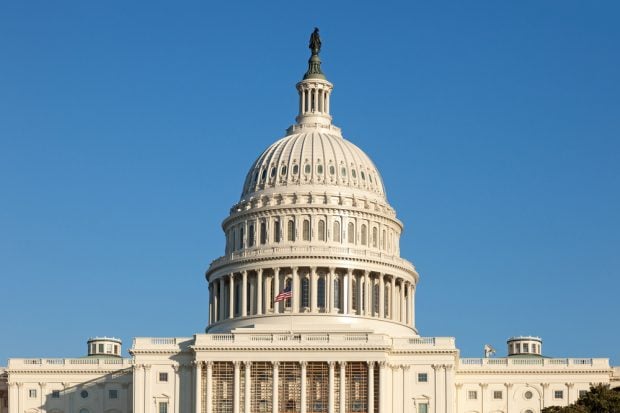 U.S. Capitol building. (Source: Shutterstock)
U.S. Capitol building. (Source: Shutterstock)
Late last week, President Joe Biden signed the $1.7 trillion omnibus spending bill, which will fund the government through Sept. 30, 2023. Depending who you ask, what's included and not included inside the massive spending bill, can be seen as a win or loss for the credit union industry.
The bill included an increase of $3.5 million for NCUA's Community Development Revolving Loan Fund which funds a revolving loan program and a technical assistance program. This is an increase from the $1.545 million last year.
Recommended For You
NCUA Chairman Todd Harper said, "I want to thank lawmakers for coming to an agreement to more than double the funds available for NCUA's Community Development Revolving Loan Fund grants in fiscal year 2023 as part of the Omnibus Appropriations package."
Harper added, the increase in funding will allow "the NCUA will be able to make more grants and bigger grants to eligible low-income credit unions for efforts like advancing Minority Depository Institutions mentoring and preservation, supporting increased access to affordable financial products and services in underserved areas, closing the racial wealth gap, and enhancing cybersecurity. That is very good news."
Also included in the bill, $324 million for the Treasury's Community Development Financial Institutions (CDFI) Fund, up from $295 million last year, which makes capital grants, equity investments and awards for technical assistance to certified CDFIs.
NAFCU Senior Vice President of Government Affairs Greg Mesack said, "This omnibus also gives CDFI funding a well-deserved boost and directs the Fund to listen to concerns of stakeholders, something NAFCU has pushed for consistently."
Two credit union-related items removed from the bill involved the Credit Card Completion Act and allowing the NCUA to have third-party vendor authority.
NAFCU's Mesack applauded the removal of those items.
"Our credit union members and diligent advocacy team were successful in keeping the Credit Card Competition Act as well as any provision to grant the NCUA with additional third-party vendor authority out of the package," he said.
On the other side, Harper stated his frustrations with Congress on excluding the items.
"However, I am also frustrated with the failure of Congress to heed the NCUA Board's calls to reauthorize the enhancements to the Central Liquidity Facility agent-member provision that come at zero cost to the taxpayer. That failure to act will now trigger the loss of $10 billion (with a B) in emergency liquidity for the smallest credit unions just as we face growing economic uncertainty, a high interest rate environment, and rising liquidity concerns. When a liquidity crisis hits, it's better to have a reliable shock absorber in place than it is to rely on a hope and prayer that the problem will somehow work itself out.
"Likewise, Congress also chose to reject additional protections for our national economic security by failing to provide the NCUA with the legal authority—the exact same authority that other federal banking regulators have to examine service providers for their regulated institutions—to examine contracted service providers who perform vital functions that have nearly $2 trillion (with a T) flowing through their unregulated information technology systems and operating practices.
The SAFE Banking Act, the Credit Union Board Modernization Act and CLF changes were also excluded from the final spending bill. Credit union officials plan to "continue to work with lawmakers in the new Congress" to hopefully pass credit union-friendly legislation in 2023.
© Touchpoint Markets, All Rights Reserved. Request academic re-use from www.copyright.com. All other uses, submit a request to [email protected]. For more inforrmation visit Asset & Logo Licensing.







